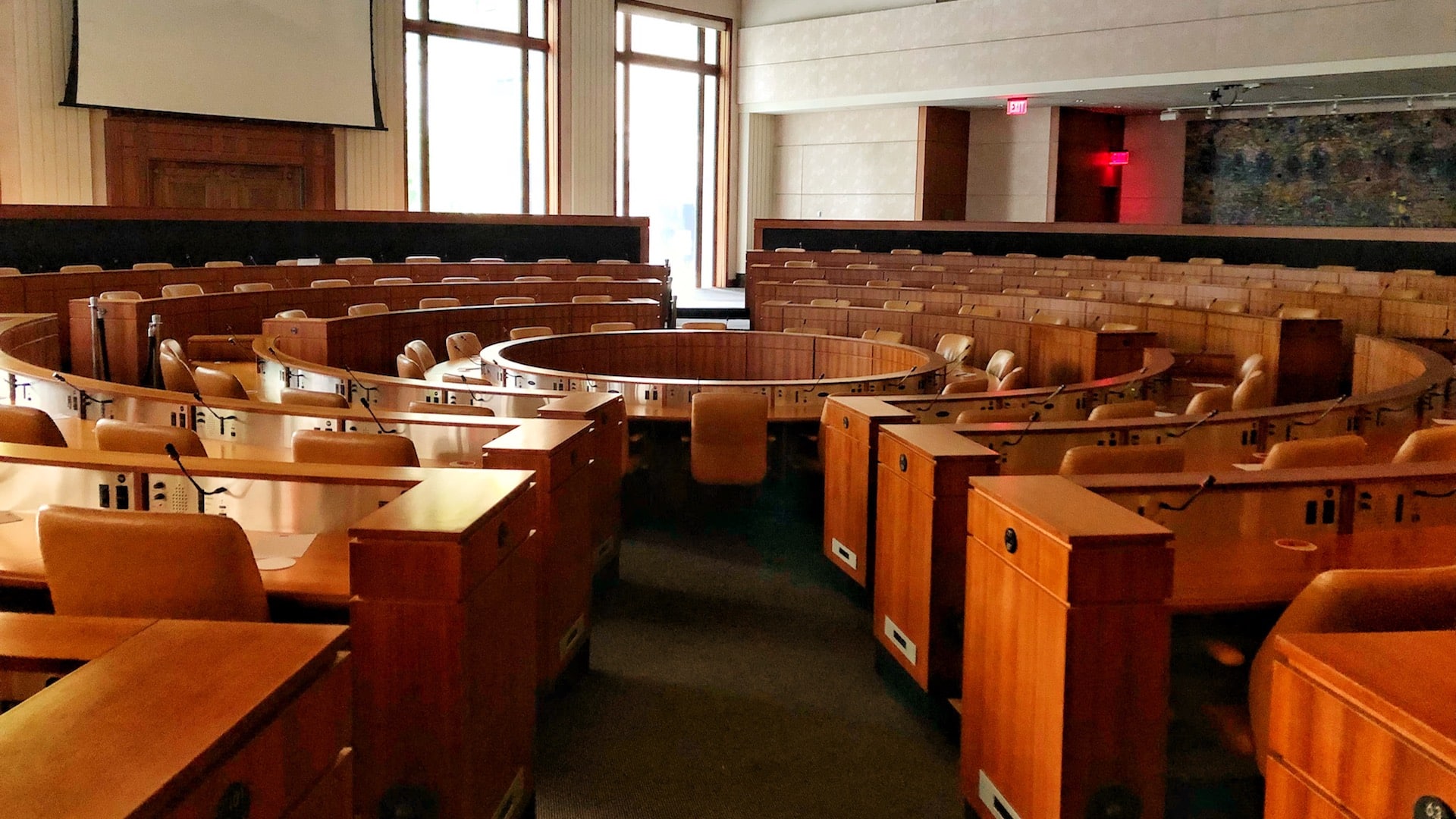There are sides in the House. This side and that side. Our side and their side. The left side and the right side. Apparently, two sides. Like binary code, either a 1, or a 0.
I’ve heard it even when Members introduce visitors to the House they say something like, “on behalf of the Members on this side of the House I welcome so-and-so to the Legislature.” Not on behalf of the Members on the other side of the House?
Apparently, the sides are really important. The good side and the bad side. Or maybe the good side and the evil side.
Sometimes I wonder whose side the people are on? Who determines if we are on the right or wrong side of history?
Set in tradition
Our democracy is fuelled by confrontation. Our desks are neatly organized into two sides, facing each other and “spaced two sword lengths apart. Historically, this was to ensure that no harm could be inflicted upon a member during a heated debate in the House. In modern times, weapons are no longer permitted in the House, but the two-sword-length spacing tradition continues.” You can learn more about your British Columbia Legislative precinct here.
But, it is not just in British Columbia, the Canadian, British and New Zealand Parliaments all have Members facing off against each other.
The tradition of this seating arrangement comes from “the Chapel of St. Stephen’s at Westminster, where members sat on the chapel benches facing each other. As parliament and parties evolved, members with shared views took to sitting together and across from their opponents. St. Stephen’s was the home of the British House of Commons until it burned down in 1834 and was replaced by the present Palace of Westminster.”
How and where we sit has an impact on the quality of the debate. In the nearly 24 months I have been a Member in the legislature, we have not stopped to question it. We just continue with the status quo like every Parliament before us.
Are there better configurations? I am under no illusions that reconfiguring the rock pile on Belleville is no easy task. But, that does not mean we should not challenge it, question it, see if we can get better outcomes.
Verbal sword fights
British Columbia is a democracy after all. It evolved from a decision hundreds of years ago to wrestle power away from a monarch and put it in the hands of the people. To a great extent, that exercise was successful. And our tradition has changed: Members no longer bring their weapons to the Legislature. So why does the tradition that keeps two sides separate need to persist? It doesn’t. Yet is does persist because people think it is just too difficult or too much work change it, so we don’t bother and we accept the result: debates are confused with arguments most closely resembling a sword fight. Our failure to change also reconsolidates in political parties the power once wrestled from the hands of the Monarch.
I think we should set up our democratic institution differently. Proportional representation is a good idea but it is just one way for our democracy to evolve. There are other ways that might work that wouldn’t require a referendum. For example, we could get rid of the desks. No more hiding, or desk pounding. Or, we could arrange Members alphabetically instead of by Party and in hierarchical ranks. We could get rid of frontbenchers and backbenchers. We could be arranged in a circle or semi-circle with no sides at all.
The point is: we design our outcomes. We should be encouraged to reflect on the kind of outcomes we want our democracy to produce and then explore how we can design our space to achieve it.
In the end, democracy is not about the politicians. It’s about the public we are elected to serve. How can we do that better? Would you volunteer to participate in a citizens’ assembly to discuss this?


Yes, I would participate in an assembly, if it could be set up so I can participate from bed, where I spend most of my time due to chronic illness.
Topic # 1 for me would be pay-for-performance with politicians.
If the bottom is suffering (high illiteracy rates, homelessness, high poverty levels, high rates of sickness and poor health with on services, lack of access to justice), then politicians do not get to vote in raises and perks for themselves until the bottom catches up.
Freeze the Top and Raise the Bottom.
Topic # 2 would be justice reform.
Canada’s patriarchal, colonial system of ‘law’ leads to systemic issues.
He-who-he-has-the-most-money wins. I use the ‘he’ intentionally.
Topic #3 would be to change the medical system.
Doctors go to school to be doctors, not business people.
Forcing them to be profit-based businesses isn’t working.
Topic # 4 would be justice for those who have been medically harmed by the denial of the existence and extent of damage Lyme Disease has caused and is causing in Canada and in BC .
See the Schmidt Report – commissioned in the province of BC
I’ll stop here. You’ve got my emails on the rest 🙂
Interesting notion. Would participate in ASSEMBLY
I’d like to learn more about how the Legislative Assembly in Nunavut works. As I understand it, there are no political parties. Dialogue is respectful and respected. Decision-making is consensus-based and the Premier is further advised by a group of Elders.
YES!
But don’t expect that to be well-received by those who feel they profit from the current system.